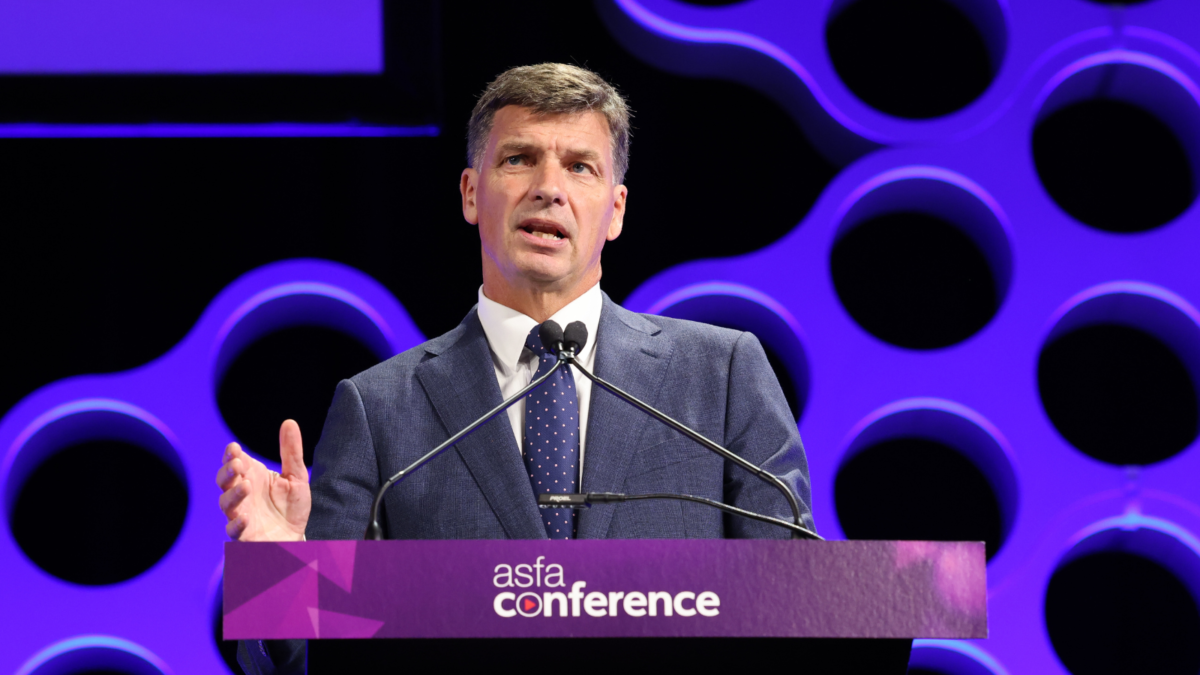Coalition finds its footing in the super wars
Speaking at ASFA’s 2023 conference, shadow treasurer Angus Taylor (pictured) warned that superannuation isn’t a “piggybank for pet projects” and quoted former treasurer John Dawkins who, when the legislation for the superannuation guarantee was introduced in April 1992, said that it was “the foundation for income security and higher standards of living in retirement for future generations of retirees”.
“Dawkins stressed that the purpose of super was to build Australians’ pool of savings, a high priority at the time,” Taylor said on Thursday (February 23). “But it was to take pressure off the budget, not to supplement it. It was never envisaged that super be used to plug revenue gaps or to become an alternative source of government spending.”
“This historical context is important, because it reminds us that in Australia’s superannuation scheme, the investor accepts compulsion in return for the superannuation benefits belonging to the individual. These are private savings. Fundamentally, super is Australians’ money – not the government’s money. And this is important when considering the purpose of super.”
Taylor and the Coalition are running with the theory that treasurer Jim Chalmers will be using the stick rather than the carrot to encourage super funds to invest in nation-building projects. Chalmers himself – and the wider Labour government – have so far shied away from compelling funds to invest.
“Arguments that super is not doing enough by delivering returns to your members are Trojan Horses for directing you to fund areas that the government of the day determines are priorities,” Taylor said. “Superannuation is Australians’ money. It is not a piggybank or to be spent or taxed to fill budget holes. Labor does not have a mandate to tax and spend Australians’ superannuation.”
“Governments are historically bad at picking winners. But it also leaves many unanswered questions, like what if your members want their investments in cash, but the government wants to invest in infrastructure? What if the government wants to support industries that Australia lacks comparative advantage in? And accordingly, are difficult to deliver good returns?”
While many of the issues that Taylor took up at the ASFA podium will be intellectually easy for the industry to dismiss, they’re harder to combat on the emotional battlefield of public perception – like Your Future Your Super before them. The pièce de resistance of this approach is the Coalition’s own super for housing policy.
“It is not cogent to most Australians to argue that on the one hand, superannuation funds can build a home financed by your money, and rent it to you at a commercial rate, but you cannot use your super to obtain a home of your own,” Taylor said, an issue that is “more stark” given the findings of the Retirement Income Review and Henry Review concerning the importance of home ownership in retirement.
If the demographic shift away from younger people owning homes is sustained, there will be “an increasing number of retirees who rent”, which the Coalition aims to address by supporting “the limited use of superannuation to support first home owners and women over 55 for a deposit for a home”.
“I appreciate this policy has its critics,” Taylor said. “It is not sufficient for a compulsory retirement system to stay silent on the issue of home ownership. Remembering that the benefit of super is for the member. Remembering that the pioneers in the Hawke/Keating government did not speak of preserving savings but preserving quality of life. It is important that a balanced superannuation system support home ownership, and good retirement outcomes, when all the evidence suggests it is critical to quality of life in retirement.”











